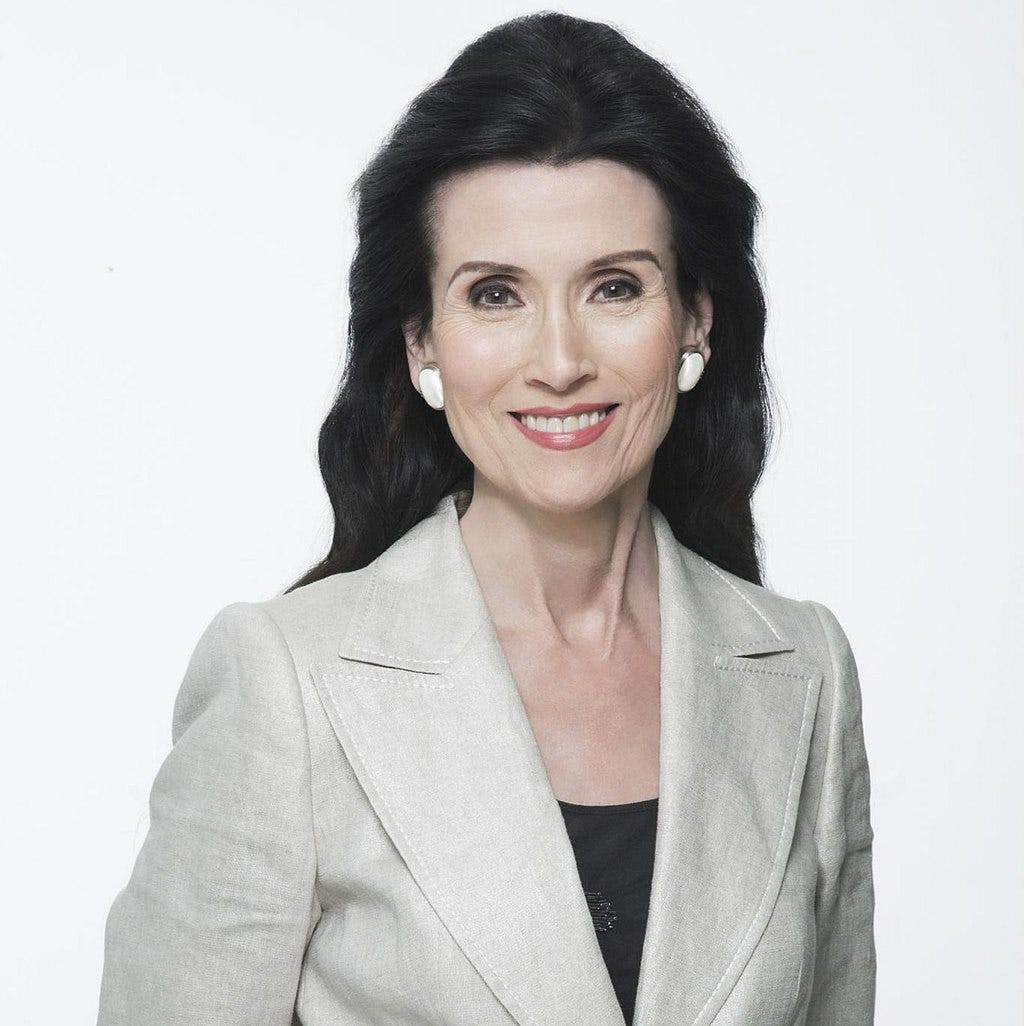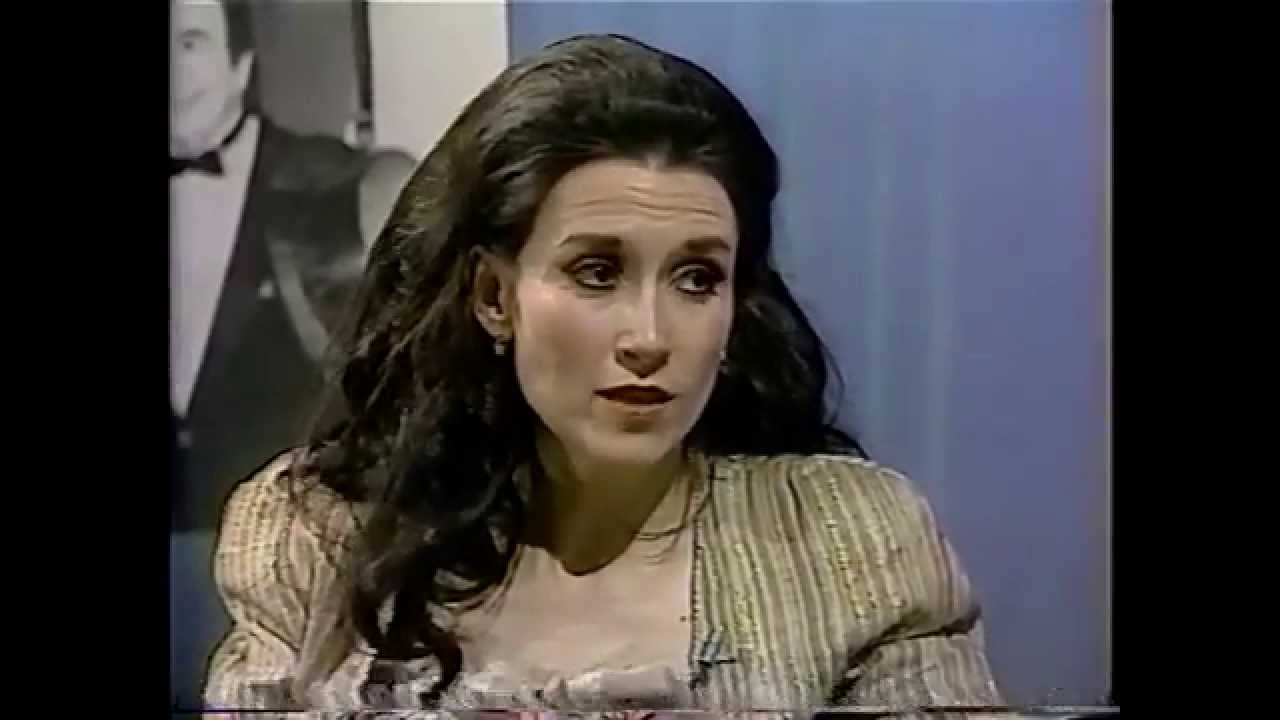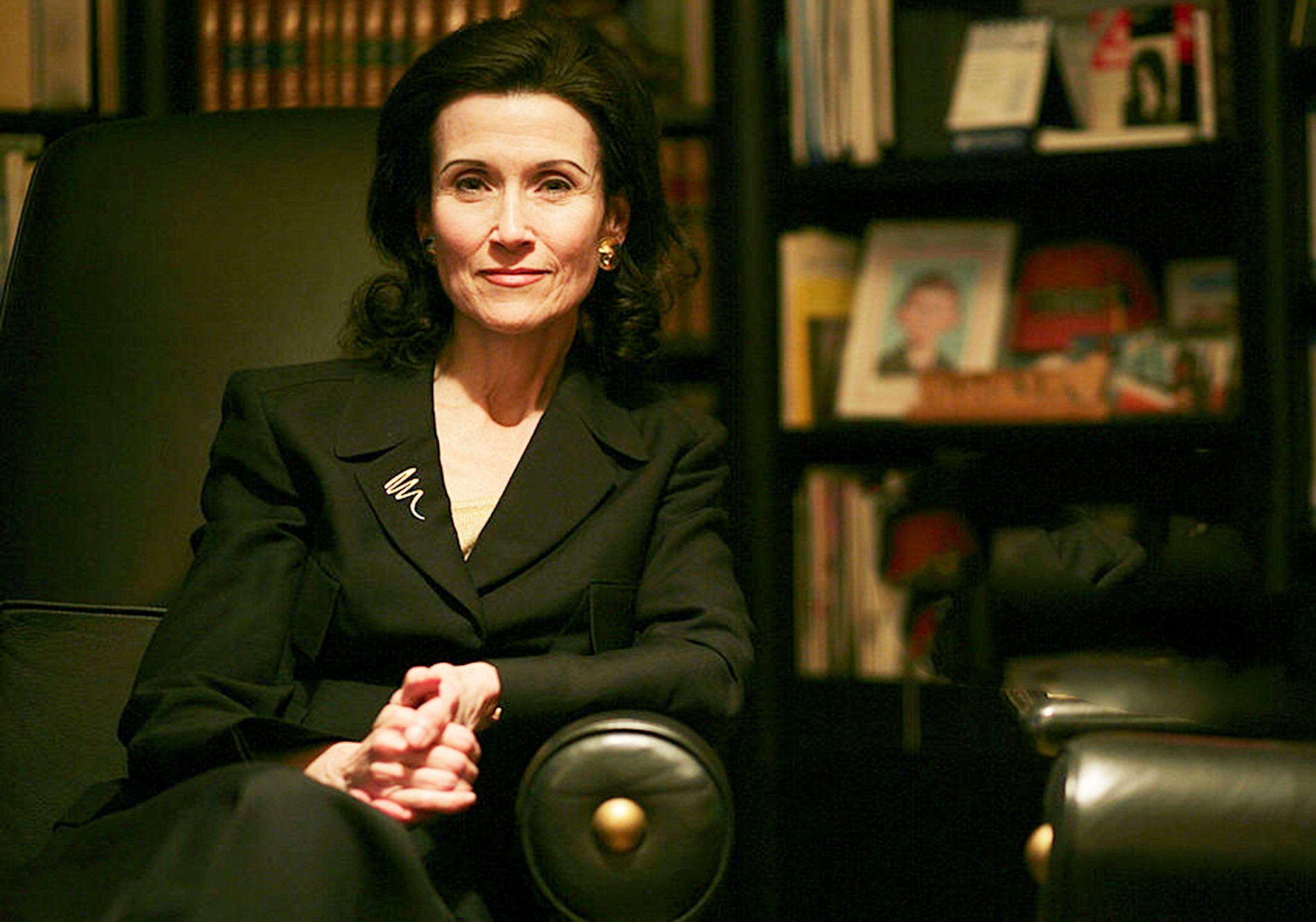Marilyn Vos Savant - The Genius Behind The Highest IQ
Marilyn vos Savant is not just a name; it represents the pinnacle of intelligence, with the highest recorded IQ at 228. What led her to this extraordinary achievement?
Author:Suleman ShahReviewer:Han JuNov 03, 20241.2K Shares144.3K Views

Marilyn vos Savant, often hailed as “the smartest person in the world,” has captivated audiences with her remarkable intellect and unique insights.
With the highest recorded intelligence quotient (IQ) of 228, her contributions to the fields of logic, reasoning, and critical thinking have left an indelible mark on society.
From her early lifeto her acclaimed "Ask Marilyn" column, vos Savant's journey is not just a testament to her intelligence but also to her enduring influence on public understanding of what it means to be smart.
This article explores her life, career, and legacy, shedding light on the woman behind the genius.
Early Life And Education
Family Background
Marilyn vos Savant was born Marilyn Mach on August 11, 1946, in St. Louis, Missouri. Her family background is a blend of diverse cultural influences; her parents were immigrants from Germany and Italy, and both her grandfathers worked as coal miners.
Interestingly, the name "Savant," meaning "a learned person," appears prominently in her family history. Vos Savant's paternal grandmother bore the surname Savant, while her maternal grandfather passed on the "von Savant" name to her mother.
Early Signs Of Intelligence
From a young age, vos Savant demonstrated exceptional cognitive abilities. By the age of 10, her intelligence was already comparable to that of a 22-year-old, as evidenced by her performance on the Stanford-Binet IQ test.
Her family recognized her extraordinary potential but decided to keep her high scores private to ensure she experienced a normal childhood, free from commercial exploitation.
Educational Experiences
| Age | Milestone |
| 10 | Took Stanford-Binet IQ test, scoring 228 |
| 16 | Graduated high school; wrote for local newspapers |
| 18 | Attended Meramec Community College |
| 20 | Studied philosophy at Washington University but dropped out |
Her academic journey included attending Meramec Community College and later Washington University in St. Louis. However, after two years, she left college to assist with the family’s investment business.
Despite her early exit from formal education, vos Savant's passion for learning never waned, and she continued to cultivate her interests in writing and logical reasoning.
Career Beginnings
After her time in college, vos Savant embarked on a career in stocks, real estate, and investment, seeking to establish financial independence.
Within five years, her investments afforded her the opportunity to transition into full-time writing—a dream she had harbored since childhood.
Her early writing included novels, short stories, and political satire, often published under pseudonyms.
Her breakthrough came in the mid-1980s when the Guinness Book of World Recordslisted her as the holder of the highest IQ. This newfound recognition thrust her into the limelight, leading to various media appearances and interviews.
Rise To Fame And The "Ask Marilyn" Column
In 1986, after her inclusion in the Guinness Book of World Records, Parademagazine profiled her, which included a selection of questions from readers along with her answers. This engagement sparked interest from the magazine, which led to the creation of her renowned column, “Ask Marilyn.”
In this column, vos Savant tackled a wide array of topics, ranging from logical puzzles to philosophical dilemmas.
One of the most famous problems she addressed was the Monty Hall problem, where she explained that participants should switch their choice of doors for a higher probability of winning.
This simple yet profound answer ignited intense debates among readers, prompting over 10,000 letters-many from academics-challenging her conclusion.
Key Highlights Of The "Ask Marilyn" Column
| Notable Problem | Details |
| Monty Hall Problem | Switching doors increases chances of winning (2/3 vs. 1/3) |
| Public Reaction | Over 10,000 letters, many challenges |
| Two Boys Problem | Probability of second boy being male is 1/3, not 1/2 |
| Public Reaction | Strong disagreement from readers |
Her ability to break down complex topics and engage with her audience in an accessible manner solidified her status as a public intellectual.
Marilyn vos Savant Explained by the Monty Hall Problem

The Simple Question that Stumped Everyone Except Marilyn vos Savant
Personal Life
Marilyn vos Savant's personal life has been as intriguing as her intellectual achievements. In 1987, she married Robert K. Jarvik, a prominent surgeon known for developing the Jarvik-7 artificial heart.
Their marriage reflects a partnership of intellect and shared interests; both have engaged in pursuits that combine their love for knowledge with social activities, including ballroom dancing lessons.
Vos Savant has humorously noted that while her husband may not excel at the tango, their relationship is filled with warmth and mutual respect.
From her first marriage, she has two children who are now adults. Vos Savant has managed to balance her family life with her professional commitments, often emphasizing the importance of education and critical thinking in her household.
This commitment to intellectual growth extends beyond her work, as she aims to foster a love for learning in her children, further highlighting her belief in the value of intelligence and its applications in daily life.
Public Perception And Media Presence

Marilyn vos Savant
Marilyn vos Savant's media presence evolved significantly following her rise to fame. She became a popular figure on the talk-show circuit, charming audiences with her outgoing personality and quick wit.
Vos Savant's appearances on shows like Late Night with David Lettermanshowcased her intelligence but also highlighted the challenges she faced as a woman in a male-dominated field.
Despite the stereotypes associated with being a genius, she defied expectations and presented herself as relatable and engaging, allowing her to connect with a broad audience. This unique combination of intellect and approachability contributed to her lasting appeal.
Controversies And Criticisms
With fame often comes controversy, and vos Savant has faced her share. The backlash surrounding her response to the Monty Hall problem exemplified the challenges of being in the public eye.
Critics, including many with Ph.D.s, vehemently disagreed with her, leading to heated debates in both academic and public forums.
Moreover, the validity of IQ testing has been a contentious topic throughout her career. Although vos Savant’s IQ scores were obtained from reputable tests-the Stanford-Binetand Hoeflin’s Mega Test-critics have argued about the reliability and applicability of such assessments.
She has consistently maintained that IQ tests measure only certain aspects of intelligence, emphasizing the importance of motivation and creativity in evaluating a person's overall capabilities.
Contributions To Intellectual Discourse
Marilyn vos Savant has authored several notable publications that further explore themes of intelligence and logical reasoning. Among her works are:
- "I've Forgotten Everything I Learned in School!": This book offers readers exercises designed to strengthen mental focus and reasoning abilities.
- "The Power of Logical Thinking": In this work, she delves into the principles of reasoning and problem-solving, arguing that even well-educated individuals can be ill-equipped in these areas.
- "Brain Building: Exercising Yourself Smarter": Co-written with Leonore Fleischer, this book encourages readers to engage their minds through various exercises.
- "The World's Most Famous Math Problem": This publication surveys the history of Fermat's Last Theorem and discusses various mathematical mysteries.
Summary Of Notable Publications
| Title | Theme/Concept |
| I've Forgotten Everything I Learned in School! | Exercises for mental focus and cognitive skills |
| The Power of Logical Thinking | Principles of reasoning and problem-solving |
| Brain Building: Exercising Yourself Smarter | Engaging mental exercises |
| The World's Most Famous Math Problem | History and insights into Fermat's Last Theorem |
Through her writings, vos Savant promotes critical thinking and encourages readers to approach problems with a logical mindset.
Legacy And Influence
Marilyn vos Savant's legacy extends far beyond her IQ score. Her influence on education and public discourse regarding intelligence is profound.
She serves on the advisory boards of several organizations, including the National Association for Gifted Children and the National Women's History Museum, where she advocates for the importance of nurturing talent and intelligence in diverse forms.
In her public statements, vos Savant emphasizes the social responsibility that comes with her intelligence.
She believes that those with exceptional abilities have an obligation to contribute positively to society, reinforcing the idea that intelligence is not solely about individual achievement but also about giving back to the community.
FAQs About Marilyn Vos Savant
What Is Marilyn Vos Savant Best Known For?
Marilyn vos Savant is best known for her "Ask Marilyn" column in Parademagazine, where she answers complex questions and solves puzzles, showcasing her remarkable intelligence.
How Did Marilyn Vos Savant Become Famous?
She gained fame after being listed in the Guinness Book of World Recordsfor having the highest recorded IQ, which drew significant media attention and led to her writing the "Ask Marilyn" column.
What Are Some Notable Books By Marilyn Vos Savant?
Some of her notable works include "I've Forgotten Everything I Learned in School!", "The Power of Logical Thinking,"and "Brain Building: Exercising Yourself Smarter."
Has Marilyn Vos Savant Faced Any Controversies?
Yes, she has faced controversies, particularly regarding her responses in the "Ask Marilyn" column, including backlash for her answer to the Monty Hall problem and critiques of IQ testing methods.
What Is Marilyn Vos Savant's View On Intelligence?
Marilyn vos Savant believes that intelligence is multi-faceted and that high IQ scores are not the only measure of a person's capabilities. She emphasizes the importance of motivation and creativity in evaluating intelligence.
Conclusion
Marilyn vos Savant's journey from a gifted child to a celebrated public intellectual exemplifies the profound impact one individual can have on the discourse surrounding intelligence and reasoning.
Her contributions through the "Ask Marilyn" column and her various publications have not only illuminated the complexities of logical thinking but also inspired countless individuals to embrace their intellectual curiosities.
As a trailblazer for women in intellectual fields, vos Savant continues to challenge stereotypes and advocate for the importance of nurturing intelligence in all its forms. Her legacy serves as a reminder that intelligence, when coupled with responsibility, can lead to meaningful contributions to society.

Suleman Shah
Author
Suleman Shah is a researcher and freelance writer. As a researcher, he has worked with MNS University of Agriculture, Multan (Pakistan) and Texas A & M University (USA). He regularly writes science articles and blogs for science news website immersse.com and open access publishers OA Publishing London and Scientific Times. He loves to keep himself updated on scientific developments and convert these developments into everyday language to update the readers about the developments in the scientific era. His primary research focus is Plant sciences, and he contributed to this field by publishing his research in scientific journals and presenting his work at many Conferences.
Shah graduated from the University of Agriculture Faisalabad (Pakistan) and started his professional carrier with Jaffer Agro Services and later with the Agriculture Department of the Government of Pakistan. His research interest compelled and attracted him to proceed with his carrier in Plant sciences research. So, he started his Ph.D. in Soil Science at MNS University of Agriculture Multan (Pakistan). Later, he started working as a visiting scholar with Texas A&M University (USA).
Shah’s experience with big Open Excess publishers like Springers, Frontiers, MDPI, etc., testified to his belief in Open Access as a barrier-removing mechanism between researchers and the readers of their research. Shah believes that Open Access is revolutionizing the publication process and benefitting research in all fields.

Han Ju
Reviewer
Hello! I'm Han Ju, the heart behind World Wide Journals. My life is a unique tapestry woven from the threads of news, spirituality, and science, enriched by melodies from my guitar. Raised amidst tales of the ancient and the arcane, I developed a keen eye for the stories that truly matter. Through my work, I seek to bridge the seen with the unseen, marrying the rigor of science with the depth of spirituality.
Each article at World Wide Journals is a piece of this ongoing quest, blending analysis with personal reflection. Whether exploring quantum frontiers or strumming chords under the stars, my aim is to inspire and provoke thought, inviting you into a world where every discovery is a note in the grand symphony of existence.
Welcome aboard this journey of insight and exploration, where curiosity leads and music guides.
Latest Articles
Popular Articles


